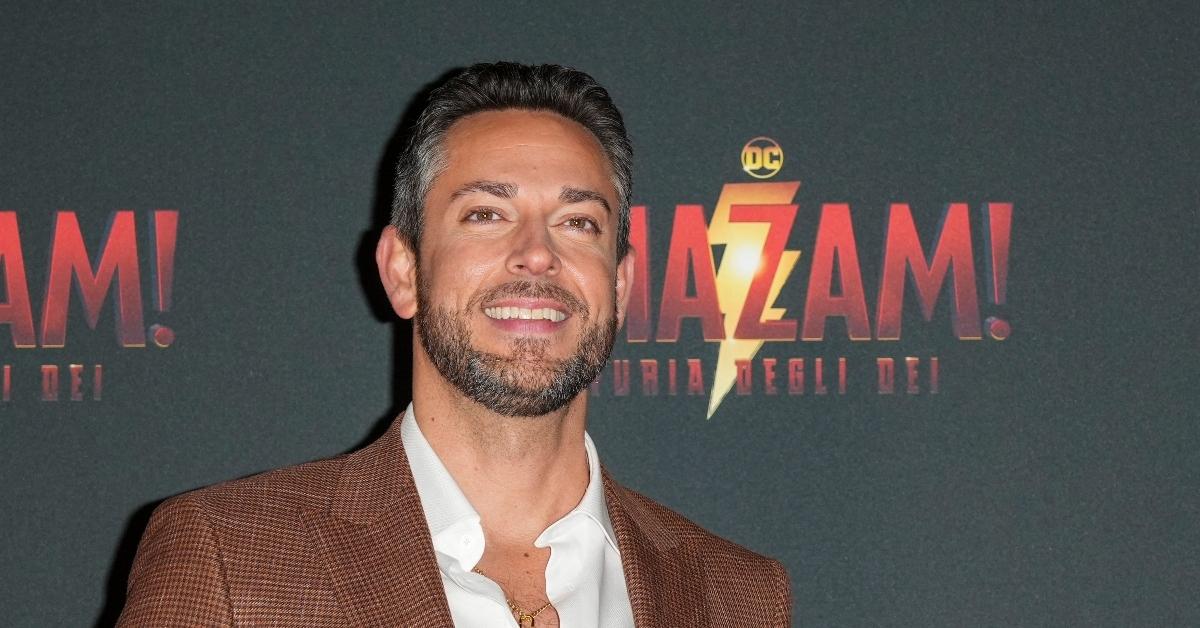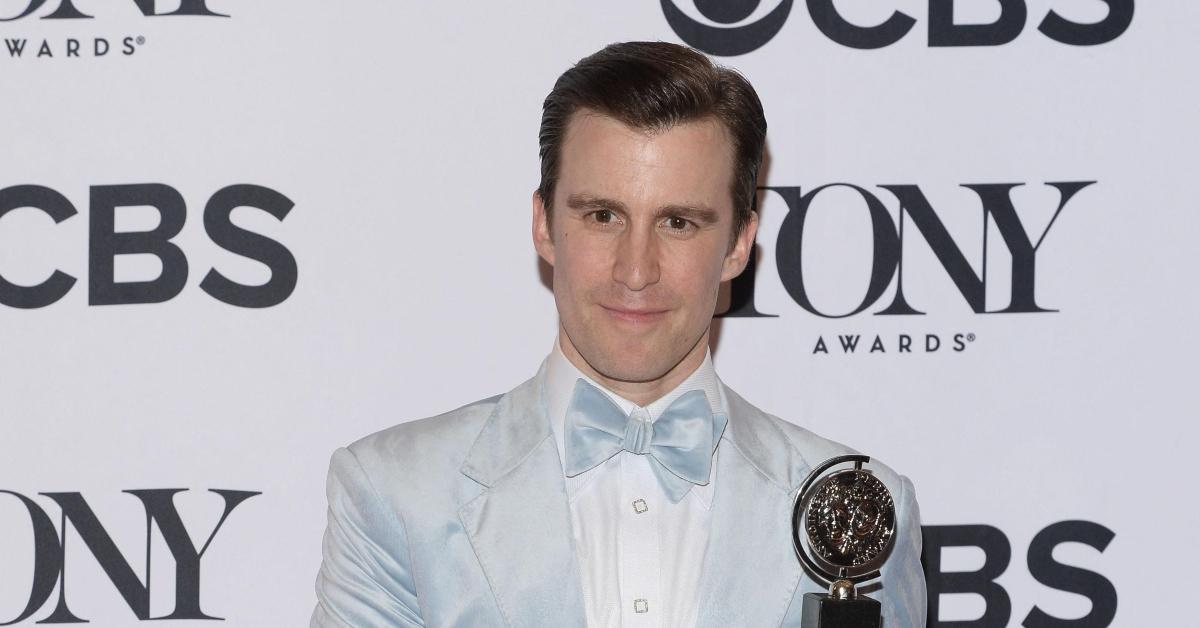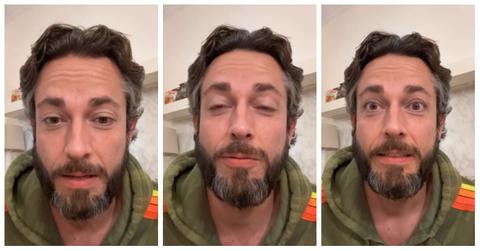What Did Zachary Levi Say About Gavin Creel? Actor Uses Friend's Death to Go on Conspiracy-Laden Political Rant
"You better believe that if these COVID vaccinations weren't forced," he continued, "without a shadow of a doubt, I believe that Gavin Creel would still be alive right now."
Published Oct. 24 2024, 1:16 p.m. ET
Actor Zachary Levi has stirred up a beehive of controversy after he took to Instagram for a nearly hour-long political rant. But it wasn't necessarily his political stance that had people up in arms.
It was when Zachary brought up the death of his friend and fellow actor, Gavin Creel. Zachary wove his political agenda into conspiracy theories about why Gavin died and used his friend's death to bolster his own political beliefs. But what did he say? Here's what Zachary had to say and why people are so upset with his use of Gavin's death to further his own agenda.

Zachary Levi
What did Zachary Levi say about Gavin Creel's death?
Zachary's rant was filled with conspiracy theories, many easily disproven. He ranted about $750 payments being "loaned" to disaster relief victims, which is false. He endorsed former President Donald Trump in his campaign to regain the presidency in the November election. And he lamented the fact that his preferred candidate was "forced" out of the running "by Democrats."

Gavin Creel
But it wasn't until he made his way around to toxins in foods and vaccines that he enraged his viewers. For nearly 10 minutes, Zachary ranted about toxins in food and vaccines, suggesting that food production companies went to Congress and asked for permission to use "poisonous" ingredients in their foods. From there, he went on to vaccines and Gavin's death. Gavin passed away from an aggressive cancer known as metastatic melanotic peripheral nerve sheath sarcoma, at the age of 48.
Like most cancers, the exact mechanisms are not known, but Gavin's type of cancer is not a known side effect of vaccines. Zachary started, "I know this is going to offend some people or make some people mad. And I wish it didn't." He then recounted his shock at discovering Gavin had passed away. Zachary called Gavin "One of the healthiest people I knew." He called Gavin's cancer, "crazy, out of nowhere."
"You better believe, with everything in me, that if these COVID vaccinations weren't forced on the American public," he continued, "without a shadow of a doubt, I believe that Gavin Creel would still be alive right now if that stuff didn't get put into his body." The actor then referred to his "speaking out" as his way of "honoring" his friend.
Zachary admits he doesn't know everything.
People in the comments blasted Zachary, with many telling him to keep Gavin's name out of his mouth. Many in the comments expressed disgust at Zachary looping Gavin's death into his political rant, accusing him of using his friend's unrelated death to push an anti-vaccine agenda.
Zachary paused for a moment to admit that he's "humble enough" to say he doesn't know everything. He clarified that he's open to discourse, and willing to learn. But the hour-long rant was delivered in an authoritative manner and, to a less discerning viewer, offered an air of expertise that Zachary's experience does not provide.
Zachary's rant is a prime example of the danger of political endorsements by celebrities. While every celebrity has the right to make their own endorsements and connect with their fans in various ways, there's a responsibility to ensure that endorsements are given with accurate information so people aren't leading impressionable fans astray. Unfortunately for Zachary, many of his points were factually wrong.
Actors likely don't set out to mislead or lie to their followers, and most certainly feel that they're doing the right, responsible, and righteous thing when they endorse a candidate. But in an era where a little knowledge is a dangerous thing and the Dunning-Kruger effect runs rampant, misinformation is causing more damage than any other single political tool to date.
The Dunning-Kruger effect states that "people with limited knowledge or competence in a given intellectual or social domain greatly overestimate their own knowledge or competence in that domain relative to objective criteria or to the performance of their peers or of people in general." This is frequently seen among social media users and celebrities.
